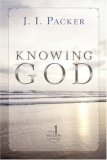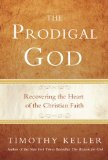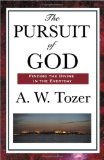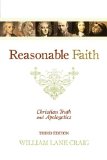I first heard of David Bentley Hart’s new book, Atheist Delusions: The Christian Revolution and its Fashionable Enemies, on volume 98 of the Mars Hill Audio Journal. Thanks to some leftover birthday money, it was soon at my doorstep. I will give the book an “official” review at a later date. In this post, I wanted to look at a larger issue catalyzed by the first paragraph in Atheist Delusions, which I will quote at length. Hart opens by setting the context for his book, which seeks to uncover the folly of today’s popular atheists (pp.3-4):
Conditions in the world of print have never before been so propitious for sanctimonious tirades against religion, or (more narrowly) monotheism, or (more specifically) Christianity, or (more precisely) Roman Catholicism…The God Delusion, an energetic attack on all religious belief, has just been released by Richard Dawkins, the zoologist and tireless tractarian, who – despite his embarrassing incapacity for philosophical reasoning – never fails to entrance his eager readers with his rhetorical recklessness. The journalist Christopher Hitchens, whose talent for intellectual caricature somewhat exceeds his mastery of consecutive logic, has just issued God Is Not Great, a book that raises the wild non sequitur almost to the level of a dialectical method…Sam Harris’s extravagantly callow attack on all religious belief, The End of Faith, has enjoyed robust sales…Philip Pullman’s evangelically atheist (and rather overrated) fantasy trilogy for children, His Dark Materials, has been lavishly praised by numerous critics…its third volume…has even won the (formerly) respectable Whitbread Prize. And one hardly need mention the extraordinary sales achieved by Dan Brown’s Da Vinci Code [sic]…surely the most lucrative novel ever written by a borderline illiterate. I could go on.
My initial reaction to Hart’s asperity (his word), was gleeful laughter. The quote above is more or less indicative of the tone throughout the book: Hart plays the role of the mature, erudite professor scolding a bunch of juvenile high school students (Dawkins, et al) for their facile, jejune publications. I’ve found similar joy in reading other authors who embarrass their opponents with such delightful eloquence.
I question, however, whether or not I am right to “delight” in such things. Though I can’t say for sure, I’ll wager my delight in Hart’s deconstruction of Hitchens is mirrored by atheists who delight in Hitchens’ anti-Christian vitriol. Everybody loves to root for their own side, and when your team scores a touchdown (real or perceived), it’s hard not to cheer.
But therein lies the rub. These people (outspoken atheists in this case) are not my enemies. Nor do I think the “us versus them” mentality is an especially Christ-like posture, let alone one conducive to helpful, civil dialogue. “Our struggle is not against flesh and blood,” after all (Eph.6:12), and where is it written that we are to rejoice when another human being receives their comeuppance? Does God take pleasure in the punishment of the wicked (see Ezk. 18:32, Mt. 23:37, among others)? Should we?
For example, in the many harsh expositions of the New Testament (such as Mt. 23, 2 Tim. 3:1-9, Jude 8-16) I don’t find any indication that fist-pumping glee is the proper reaction. Why, then, is it often my own? When Dan Brown’s historiography is exposed for what it is (i.e., excrement), why do I get a warm feeling inside my chest? To wit: my last sentence brought about a wry smile to my face.
Simply put, I am offended by attacks against my God, and I long to see His Truth vindicated. When another person wages warfare against the beliefs – indeed, the Person! – I hold in highest esteem, it is injurious in two ways. First, I feel it as a personal attack, not unlike somebody decrying my own father or wife. Second, I understand the attack as a lie, and wish the truth to be known over and against it. I don’t find anything sinful in these reactions, per se. They are often cast under the umbrella or “righteous indignation” or “righteous anger,” against which I have no beef. It is rather the attitude behind my reaction that I believe to be sinful: I am hurt, so I wish to hurt back, even if vicariously through another author. Speaking, writing or appreciating a harsh rebuke is no sin, but the attitude behind it can be.
I believe the key to reacting well is to maintain the distinction between the attacker and the attack. The attack (the anti-Christian proposition), is of the devil. It is a lie to be hated and defeated. We love the Truth, and rejoice when the Truth is shown to triumph over the lie. The attacker (the person), is loved by God, and therefore loved by us. Our attitude towards him or her is primarily loving. To see one loved by God so viciously attack Him is ultimately a sorrowful affair. If fatherhood has taught me anything, it is that it is possible to be angry with somebody while simultaneously loving them and laboring for their best. I’ve never once rejoiced at my thorough, truthful rebuke of my own son. Rather, my heart is always heavy. We must walk carefully, however, lest our attitude becomes, “Poor things, they’re so deceived.” We could just as well commit the error of the Pharisee in Lk. 18:11 and thank God we’re not one of those people.
It is often the case that the attack and attacker become blurred in my mind. I confuse the person with the proposition, and make the mistake of thinking that a given philosophical stance exhaustively defines who somebody is. The sayings are perhaps trite, but loving the sinner and hating the sin goes a long way to reacting well, so also does speaking the truth in love. Honestly, I think I fail at this more often than I succeed, as perhaps my writings on this blog (this post, even) will testify. Would that the scales tip in the opposite direction for me and all of God’s children soon.
Read Full Post »
















